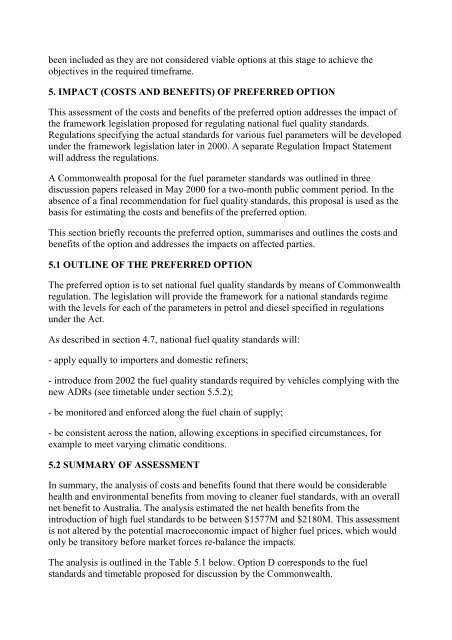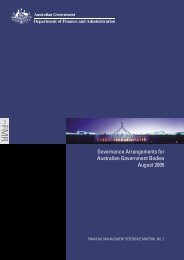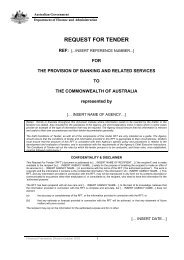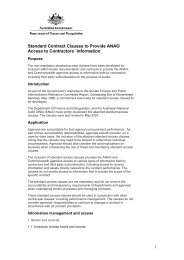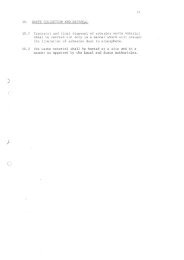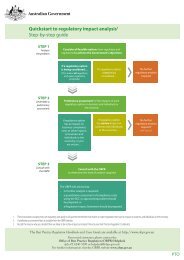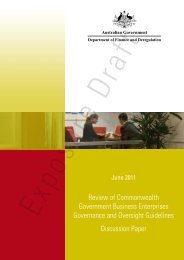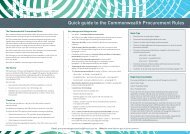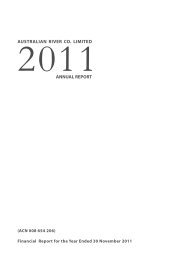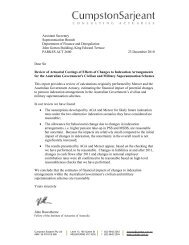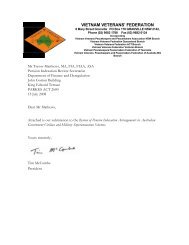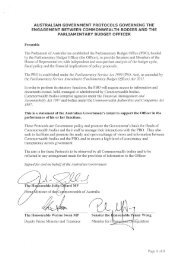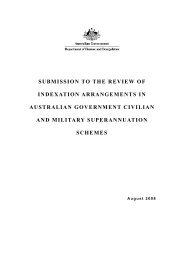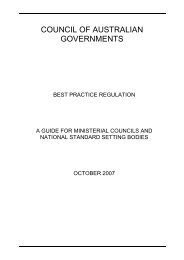National Fuel Quality Standards Regulation Impact Statement 1 ...
National Fuel Quality Standards Regulation Impact Statement 1 ...
National Fuel Quality Standards Regulation Impact Statement 1 ...
You also want an ePaper? Increase the reach of your titles
YUMPU automatically turns print PDFs into web optimized ePapers that Google loves.
een included as they are not considered viable options at this stage to achieve the<br />
objectives in the required timeframe.<br />
5. IMPACT (COSTS AND BENEFITS) OF PREFERRED OPTION<br />
This assessment of the costs and benefits of the preferred option addresses the impact of<br />
the framework legislation proposed for regulating national fuel quality standards.<br />
<strong>Regulation</strong>s specifying the actual standards for various fuel parameters will be developed<br />
under the framework legislation later in 2000. A separate <strong>Regulation</strong> <strong>Impact</strong> <strong>Statement</strong><br />
will address the regulations.<br />
A Commonwealth proposal for the fuel parameter standards was outlined in three<br />
discussion papers released in May 2000 for a two-month public comment period. In the<br />
absence of a final recommendation for fuel quality standards, this proposal is used as the<br />
basis for estimating the costs and benefits of the preferred option.<br />
This section briefly recounts the preferred option, summarises and outlines the costs and<br />
benefits of the option and addresses the impacts on affected parties.<br />
5.1 OUTLINE OF THE PREFERRED OPTION<br />
The preferred option is to set national fuel quality standards by means of Commonwealth<br />
regulation. The legislation will provide the framework for a national standards regime<br />
with the levels for each of the parameters in petrol and diesel specified in regulations<br />
under the Act.<br />
As described in section 4.7, national fuel quality standards will:<br />
- apply equally to importers and domestic refiners;<br />
- introduce from 2002 the fuel quality standards required by vehicles complying with the<br />
new ADRs (see timetable under section 5.5.2);<br />
- be monitored and enforced along the fuel chain of supply;<br />
- be consistent across the nation, allowing exceptions in specified circumstances, for<br />
example to meet varying climatic conditions.<br />
5.2 SUMMARY OF ASSESSMENT<br />
In summary, the analysis of costs and benefits found that there would be considerable<br />
health and environmental benefits from moving to cleaner fuel standards, with an overall<br />
net benefit to Australia. The analysis estimated the net health benefits from the<br />
introduction of high fuel standards to be between $1577M and $2180M. This assessment<br />
is not altered by the potential macroeconomic impact of higher fuel prices, which would<br />
only be transitory before market forces re-balance the impacts.<br />
The analysis is outlined in the Table 5.1 below. Option D corresponds to the fuel<br />
standards and timetable proposed for discussion by the Commonwealth.


